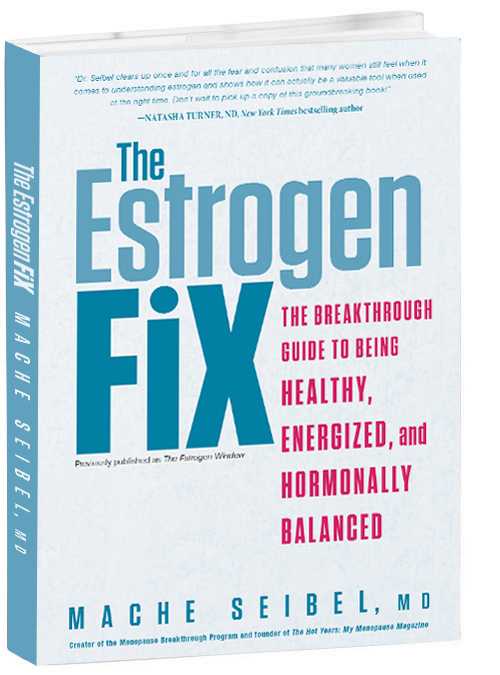
Ever since a 2002 study called the Women’s Health Initiative or WHI reported that estrogen and hormone replacement therapy caused breast cancer, heart disease and more, millions of women have stopped taking it and millions more never start using it…
And doctors have largely stopped prescribing it.
As a result, estrogen went from being the most prescribed pill in the United States to being one of the most feared and confusing medications on the planet.
Today 80% fewer women use hormone therapy (HT) than in 2002 and doctors in training have 80% fewer menopausal women to gain experience from in the treatment of menopause and use of hormone therapy. They’re confused too.
But that may be about to change. People who are estrogen phobic have some good news to consider!
In addition to dozens of papers that identified flaws in the original 2002 WHI study, a new study published September 12, 2017 in the Journal of the American Medical Association (JAMA) reports that after reviewing the same women from the original 2002 study some 18 years later, including 10-12 years of follow-up, the women who took estrogen to lower their suffering from hot flashes and night sweats to receive some relief had no increased risk of early death.
My Harvard Medical School colleague and the lead author, Dr. JoAnn Manson, who is chief of preventive medicine at Brigham and Women’s Hospital in Boston said this JAMA study, “provides support for the use of hormone therapy for treatment of bothersome and distressing hot flashes, night sweats and other menopausal symptoms that may impair quality of life in women who don’t have a reason not to take hormone therapy.”
Then there is the question of cancer. The big “C” word, especially breast cancer, scared away just about everyone. But what did the follow-up reevaluation show?
First understand the differences in taking estrogen. For women who have a uterus, estrogen plus a progesterone type of medication is also given to protect the uterine lining from an increased risk of uterine cancer. Women who have had a hysterectomy (had their uterus removed) only need to take estrogen.
Among the over 27,000 women with an average age of 63 that the WHI tracked, there was a reduced risk of breast cancer among the women who took estrogen only. Among those who took estrogen plus progestin, there was a slight increased risk of breast cancer – about the same increase seen in women who drink 1-2 glasses of wine per week or who have dense breasts or who are overweight. But there was a reduced risk of uterine cancer.
Dr. Manson said, “We found that hormone therapy really didn’t affect most other types of cancer, so the overall effect of hormones on cancer deaths was neutral.”
And throughout all the time of treatment, the women who took hormone replacement therapy had their symptoms like hot flashes and insomnia greatly improved!
Remember also, the original WHI study only included one dose of estrogen and progestin and it was in a pill form. Today we have many FDA approved lower dosages and hormones can be taken through the skin as patches, sprays or gels.

I’m really happy about these findings but not surprised. It’s the exact outcome that the research resulting in my new book, The Estrogen Fix, explains in clear and easy to understand terms. It explains how much, how long, and what kind.
Once you read this book, due out September 19, you won’t fear estrogen again. You’ll figure it out so you don’t have to tough it out. And if you can’t take estrogen, you’ll know all the alternatives.
Order the book at EstrogenFixBook.com. And if you purchase it now, you’ll get Nine Free Gifts as a special thank you. Order your copy now and see how and why it’s time for you to get your estrogen fix!
